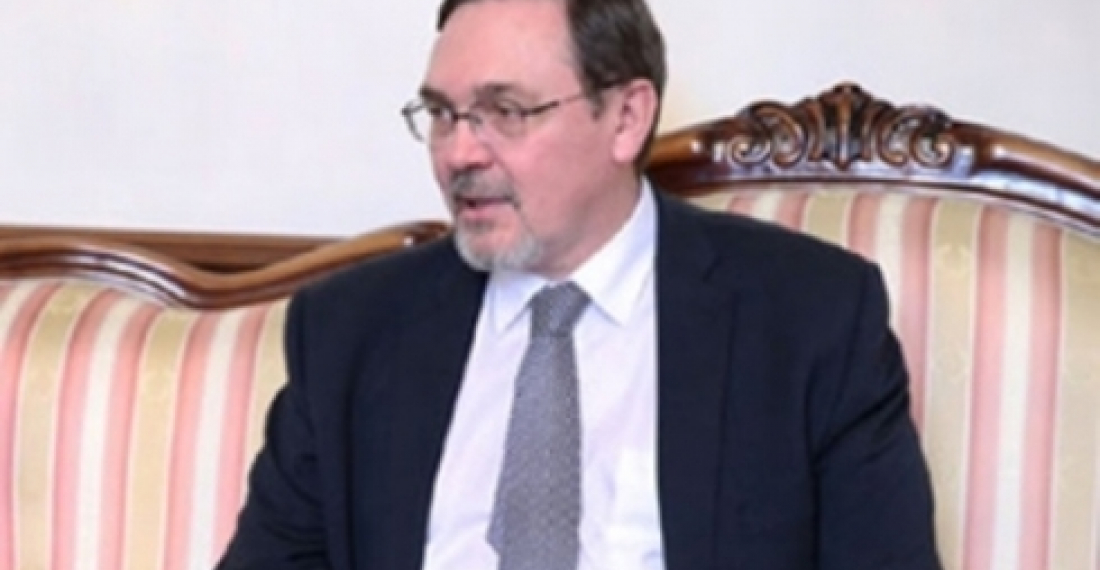This is a commentary prepared by the editorial team of commonspace.eu.
The extent to which Armenia has become dependent on Russia militarily and economically has been the subject of much comment and speculation in the past. This concern is sometimes expressed publicly, but is much more vocal amongst Armenians themselves when speaking in private. Apologists for President Serzh Sargsyan and his foreign policy often cite Armenia's historical experiences, its blockade by Turkey and Azerbaijan, its geography as a land locked country, and its lack of natural resources, as reasons why Armenia's relations with Russia are what they are. The security of Armenia and of Nagorno-Karabakh are the paramount consideration, President Sargsyan often reminds his supporters and critics alike.
Thus, when Armenia signed a long term military agreement with Russia, many sighed but said that it was inevitable. When Russian politicians started referring to Armenia as an outpost of Russia, some dispaired but called it an outburst by unrepresentative politicians. When President Serzh Sargsyan dramatically reversed his own policy, abandoning plans to enter in an Association and Free trade agreements with the EU and instead opted to join the Russia led Customs Union, there was outrage even among some of his own supporters, but eventually they all put a brave face, and decided to go along despite the many misgivings.
However this trend seems to have no end. Earlier this week Russia's Ambassador to Armenia Ivan Volynkin, publicly advocated the silencing of the few NGOs that have dared question some of Armenia's "Russia Policy". In an interview with the Russian-Armenian newspaper "Noev Kovcheg," Volynkin said,
"I am convinced that Russia should be more active in asserting its presence in the information field here in Armenia," he replied. "But other methods are also apparently needed for neutralizing those NGOs in Armenia that want to drive a wedge into Russian-Armenian relations." "Incidentally, Russia has enacted a law that regulates the work of NGOs in a very concrete manner," he said, referring to a controversial law that forced foreign-funded NGOs to register as "foreign agents" in Russia.
The Russian Embassy in Yerevan has been in some state of panic since the presidential elections in Armenia last year which saw an opposition candidate Raffi Hovhannisian registering a much higher percentage of the poll than was expected, even in the somewhat overmanaged political environment. The unexpected result took the Kremlin by surprise.
However this latest attempt to silence Armenia's civil society has caused a huge upset within the Armenian elite, including among those who normally are more ready to acquiesce.
The Armenian Foreign Ministry was obliged to take a public position, saying that all NGOs in Armenia operate within the law. The spokesperson for the Ministry, Tigran Balayan, said it was inconceivable that any NGO could drive a wedge intoRussian-Armenian relations, which are based on a century-long friendship and have withstood the test of time.
But the incident has raised questions about the prospect of direct Russian interference in Armenian political life - an interference that can draw on the full might of leverages - military, financial, economic and others, that Russia now holds on Armenia. If Ivan Volynkin is ready to interfere so publicly in an effort to silence a few NGOs that are critical of Armenia's relations with Russia one wonders to what extent he would interfere if the threat to these relations is more serious. By acting more like a viceroy than an Ambassador, Volynkin has given a taste of what Russian "soft power" looks like.
This commentary was prepared by the editorial team of commonspace.eu.







